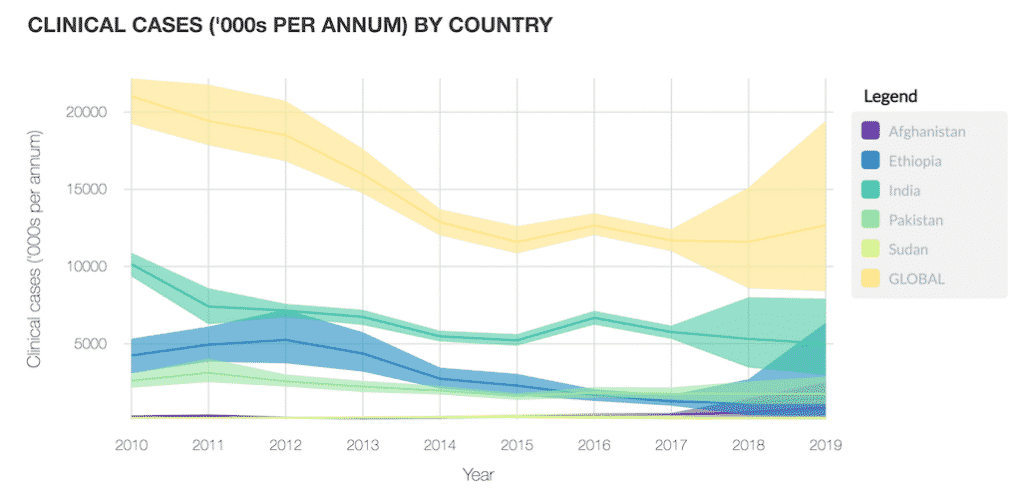A single-dose drug combination has been approved by Australian regulators as an effective malaria cure. The non-profit Medicines for Malaria Venture, which helped develop the treatment, announced TGA approval on Monday.
The new treatment consists of a dose of tafenoquine administered alongside the traditional chloroquine. It has proven effective in curing children aged 2-16 suffering from malaria caused by Plasmodium vivax.
P. Vivax
Most common in South and Southeast Asia, South America and the Horn of Africa, P. vivax causes up to 5 million malaria infections every year. It’s notoriously difficult to treat as it can cycle through different forms in the body. Aside from invading the blood, it can also hibernate in the liver.
There, it can remain dormant for long periods of time, causing relapses months or even years after initial exposure. These relapses can cause severe anaemia, lasting brain damage, and death.
Even in non-fatal cases, malaria leaves children’s immune systems damaged and vulnerable to other diseases. Children aged 2-6 are four times as likely as adults to contract P. vivax malaria.

Tafenoquine and the New Treatment
Tafenoquine is produced by GlaxoSmithKline, but it was Medicines for Malaria Venture which pioneered the tafenoquine-chloroquine mix. Scientists have called the combination approach a “radical cure.”
The combo drug will be administered as a single tablet dispersed in water. This makes it much easier to take than the current treatment course for adults – a 7 or 14-day pill course.
Whereas most malaria treatments – including chloroquine – target the blood stage of the disease, tafenoquine attacks hibernating parasites in the liver. This means it can prevent relapses, unlike blood-targeted treatments.
As Mr George Jagoe of Medicines for Malaria Venture summed up, “what you’re really proving with vivax treatments like these are that six months from now, you’re not going to get a relapse.”
Trials have placed the recent cure’s efficacy in preventing recurrence at 95 percent after 4 months, similar to the efficacy in adults and older adolescents.
The cure comes on the heels of last year’s WHO endorsement of Mosquirix, the world’s first malaria vaccine.
The vaccine was considered a breakthrough for the broader science world, as it’s the first vaccine ever developed for a parasitic disease. Parasites like malaria are far harder to vaccinate against than viral or bacterial infections.
The new tafenoquine-chloroquine cure will now be submitted for approval in nine countries and to the WHO.
Follow Maddie’s journalism journey on Twitter.
Sign Up To Our Free Newsletter